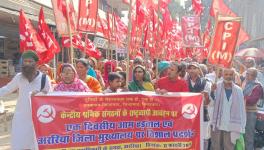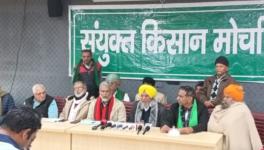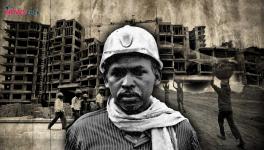Journalist Bodies Call for Media Commission, Wage Fixing Mechanism
Two leading bodies of journalists in India on Monday sent letters to political leaders, parliamentarians, eminent citizens and trade unions calling for a Media Commission to study the prevailing situation after the government virtually did away with the Working Journalists Act 1955 and Fixation of wages Act 1956. They also underlined the grave state of press freedom and other key issues faced by journalists in the country.
The National Alliance of Journalists (NAJ) and the Delhi Union of Journalists (DUJ), wrote the letters following the 75th anniversary of Indian Independence.
The NAJ and DUJ urged the Commissions to not only look into the service conditions but also the immediate replacement of both the Press Council and a Media Council of India to bring print, broadcast, digital and cable media under one roof.
The statement said that it should not be the government’s responsibility to formulate guidelines for digital, print, and broadcast media functioning but the responsibility of press persons including experts from judiciary and parliamentarians, etc. This would ensure a free and fair media along with dignified working conditions for the media community, the statement added.
The joints statement also underlined the need for a Media Commission on the lines of the first and second Press Commissions of India. This commission would comprise representatives of the media along with representatives of the judiciary and other experts, it said, The body would survey the status of the media today, its ownership patterns, the problems of monopoly and cross-media holdings, the revenue model heavily dependent on government and private advertising and related issues, the statement said. Further, it added that the new commission should be more autonomous than the first and second commissions and ensure a rational wage structure and protection of press freedom.
The journalist bodies also said that a permanent wage structure that is periodically revised was the need of the hour. Moreover, they said there was a need for the analysis of the emerging digital media and the problems faced by them besides the questions of censorship and distortion of the news of people’s struggles.
The statement said, “On behalf of the National Alliance of Journalists (NAJ)and the Delhi Union of Journalists (DUJ), the oldest and premier body of journalists in Delhi, we wish to point out that as never before, journalism, journalists and co-workers are at the crossroads, facing not only dangers to press freedom but to their very livelihoods. Covid has become a pretext to crush and browbeat the profession to submission, by throwing out those whose labour built up a booming media industry. The situation is grave and multiplied by reports of snoopgate, attacks and FIRs against media persons, curbs on the freedom of the press and the deliberate withdrawal of various facilities to journalists.”
The statement further said that nearly all trade union rights enjoyed by journalists and press workers have been negated by a variety of central labour codes on wages and social security. “That the Working Journalists Act, including the establishment of wage boards, has been abolished by a variety of central government codes that are killing all forms of security not only for us but for the majority of working classes who are already on the warpath,” it said. While hundreds of cases of non-implementation of the Majithia Wage Board Award of 2011 were pending, journalists were “shell shocked” about the abolishing of the wage board without any alternative wage fixation machinery, it said.
Claiming that more than a thousand journalists have lost their jobs, the journalist bodies pointed out that they have repeatedly written open letters to MPs, published press releases and sent written objections before the Standing Committee on Labour in 2019 pointing out the issues. However, to no avail.
The statement expressed concern that most of those who lost jobs would have had to go without even the retrenchment benefits prescribed under the Working Journalists Act or the Industrial Disputes Act. It warned that if there was a third Covid-19 wave, the number of such victims could multiply manifold.
On the freedom of press, the statement pointed out how journalists who cover Parliament were increasingly finding their access barred, with passes being withheld in many cases. It also highlighted how the limited spaces for independent journalism were being threatened by the Technology (Intermediary Guidelines and Digital Media Ethics Code) Rules, 2021. The statement alleged that the Rules were a move to control the digital news media besides OTT platforms and social media companies.
The statement also expressed shock at the “vanishing” of the special committee, set up on the orders of the Union Cabinet Secretary, to look at press freedom and India’s poor ranking in the World Press Freedom Index. India slipped to 142nd rank in the Reporters Sans Frontiers’ 2020 Report on press freedom.
In conclusion, the scribes’ bodies said, “We urge you to heed our call to save media freedoms and save journalists from the multi-pronged attacks they are facing today. We ask you to pass new laws to protect our liberties and those of all citizens, including those who have been unfairly targeted and prosecuted. Above all, we urge you to uphold the Constitution and its values and defend democracy today.”
Get the latest reports & analysis with people's perspective on Protests, movements & deep analytical videos, discussions of the current affairs in your Telegram app. Subscribe to NewsClick's Telegram channel & get Real-Time updates on stories, as they get published on our website.
























